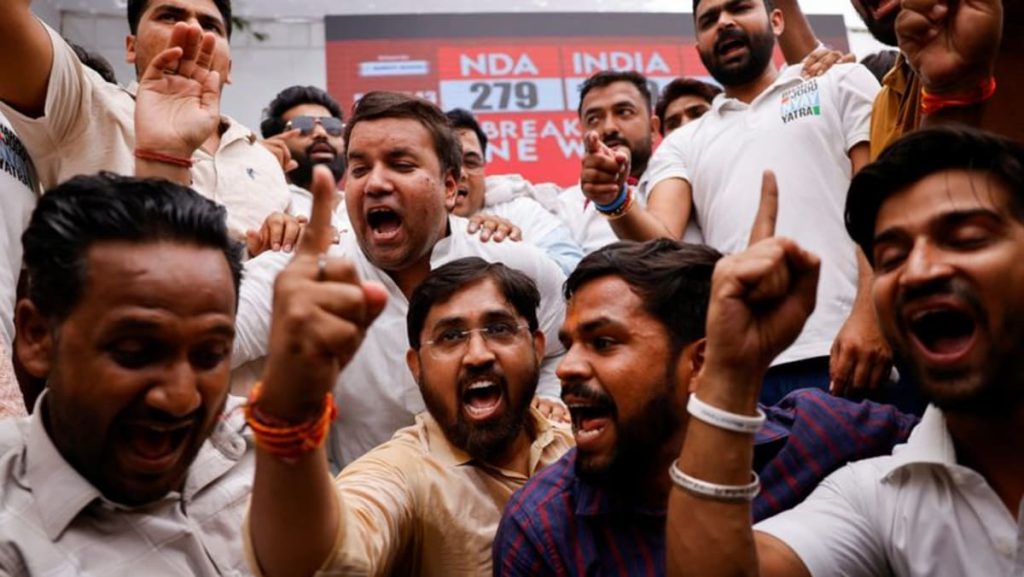India’s political landscape may be undergoing significant changes, according to analysts. The shift towards coalition partners and alliance politics is expected to return to pre-Modi era norms. This change signifies a move away from the cult of personality politics that has dominated in recent years, as well as a dispersal of political power from the centralised government in New Delhi. Regional politics will also likely play a more prominent role at the national level, with major coalition partners such as the Telugu Desam Party and Janata Dal having influence in different regions of the country.
For Prime Minister Modi, navigating this new political landscape will be uncharted territory. Modi’s aggressive centralisation of power and strained relationships with coalition partners may pose challenges in forming a cohesive government. Analysts question whether Modi will establish new state institutions to maintain his coalition, similar to how he has addressed political opposition in the past. The role of the opposition in the next government is also uncertain, as citizens have previously had to resort to protests to voice their grievances against the ruling BJP.
The potential return to coalition politics is seen as a positive development for India’s parliamentary democracy. With the likelihood of a more balanced representation of diverse interests, formal parliamentary procedures may provide a platform for citizens to address their concerns through the opposition. This shift could mark a significant departure from the lack of effective opposition in the past decade and offer a renewed opportunity for democratic processes to be more robust and inclusive.
The influence of regional politics is expected to grow as coalition partners from different regions collaborate to form a government. This diversification of power may lead to a more decentralised political landscape, with key players in South and East India playing a crucial role in shaping national policies. The impact of these regional dynamics on governance and decision-making processes remains to be seen, but it is clear that regional interests will have a greater influence on the national political agenda.
Analysts also anticipate changes in the political landscape resulting from the public’s involvement in parliamentary procedures. As citizens have previously taken to the streets to voice their dissent, the return to coalition politics and potential strengthening of the opposition could provide alternative avenues for grievances to be addressed within the formal parliamentary framework. This shift towards a more participatory democracy could foster greater accountability and transparency in governance, with parliamentary debates and discussions playing a more central role in shaping public policy.
While the exact implications of these changes on India’s political landscape remain uncertain, the potential for a return to coalition politics and a more decentralised power structure offers a promising outlook for the country’s democracy. As regional interests gain prominence and citizens engage in parliamentary proceedings, the political environment is set to undergo significant transformation. The coming years will reveal how these shifts impact governance and decision-making processes, with the hope that a more inclusive and representative political system emerges to address the diverse needs and concerns of the Indian population.













